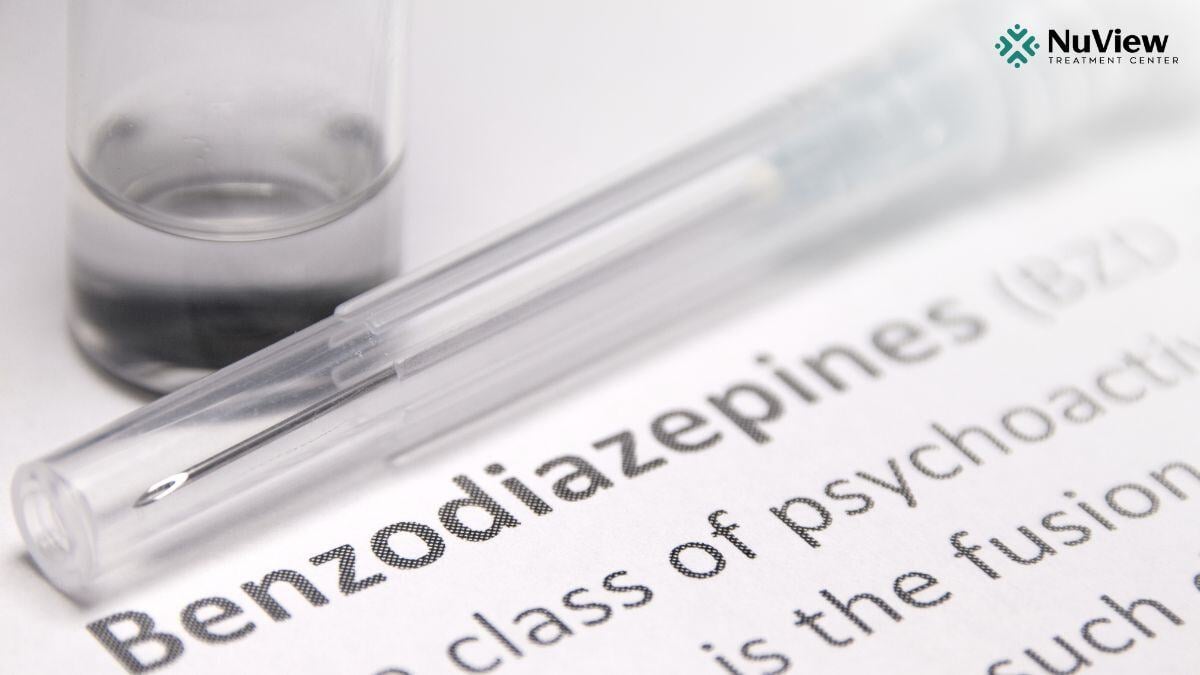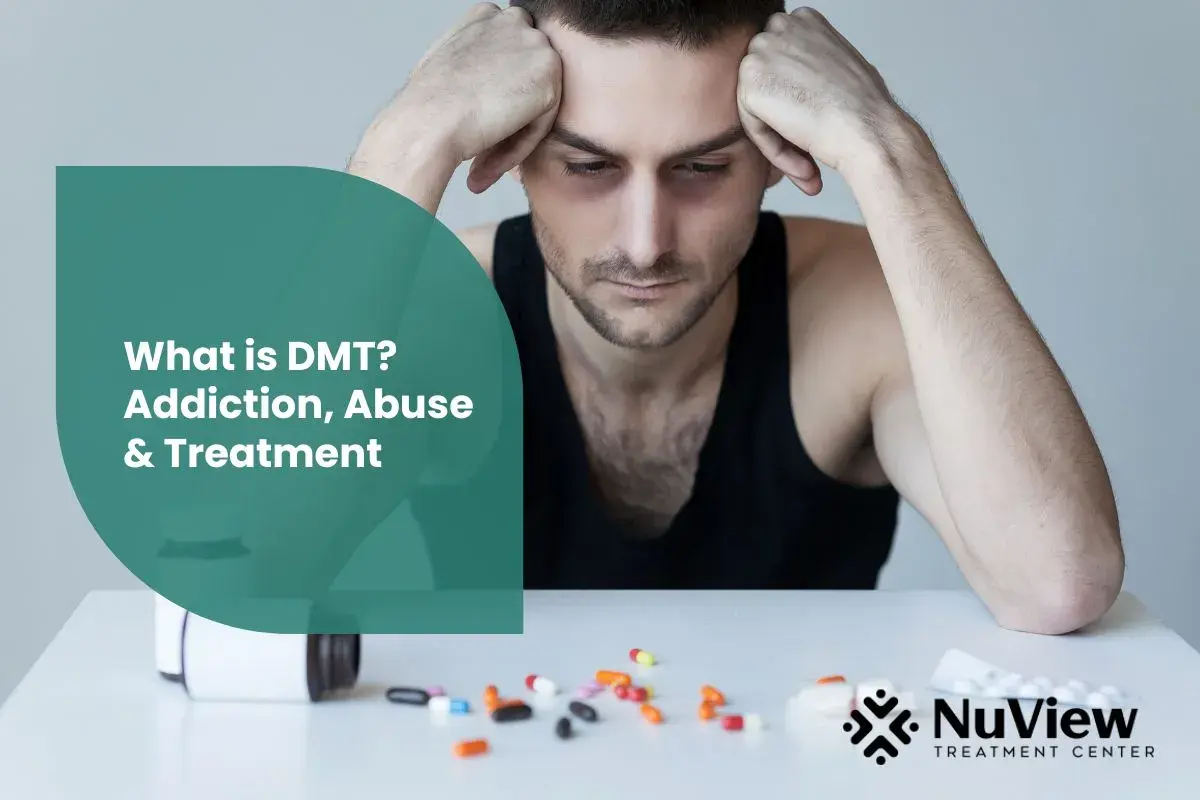What Are Benzodiazepines?
Benzodiazepines are a class of drugs known as depressants. They are colloquially known by some of the street names like benzos, roofies, downers, vallies, and xannies.
Benzodiazepines function like sedatives, which means that they slow down your brain and body functions. Hence, they are used in the treatment of anxiety disorders and sleep-related conditions like wakefulness or insomnia.
While they have their medical uses, benzodiazepines unfortunately come with the high risk of dependence. Hence, they are considered to be controlled substances in many countries, including the U.S. This means that they are only available to you under a doctor’s prescription, and it is illegal to possess them otherwise.
What Are Benzodiazepines Used For?
There are different types of benzodiazepines, depending on their potency and uses. You may have even heard of some familiar brand names like Valium and Xanax. So, here are the different types of benzodiazepines and their uses:
Medication Name | Brand Name | Primary Uses |
Alprazolam | Xanax | Used to treat anxiety and panic disorder. |
Chlordiazepoxide | Librium | Used for managing alcohol withdrawal symptoms and anxiety. |
Clonazepam | Klonopin | Helps manage panic disorder and seizure conditions. |
Diazepam | Valium | Prescribed for panic attacks, restless leg syndrome, insomnia, seizures, and alcohol withdrawal. |
Flurazepam | Dalmane | Used primarily to treat insomnia. |
Lorazepam | Ativan | Used for anxiety relief, seizure control, and as a sedative in anesthesia. |
Temazepam | Restoril | Commonly prescribed for treating insomnia. |
Get Started With Nuview Treatment Center
Our dedicated professional staff is here to guide you or your loved one on the journey to lasting recovery, offering support every step of the way.
What Are The Side Effects of Benzodiazepines?
Now that we have learned about the different benzodiazepines and their uses, let us move on to the benzodiazepine side effects. They can be both immediate and long-term. Some of the immediate side effects are:
- Drowsiness and lightheadedness
- Confusion
- Slurred speech
- Muscle weakness
- Blurred vision
- Dry mouth
- Nausea
- Constipation.
Some of the long-term benzodiazepines side effects are:
- Lowered focus
- Feeling lethargic and slow
- Feeling distant from emotions
- Irritability and frustration
- Memory problems
- Weight problems.
Benzodiazepine Withdrawal Symptoms
As benzodiazepines can lead to dependence, there is also the risk of developing withdrawal symptoms. These are highly unpleasant feelings when you suddenly stop taking benzodiazepines after a prolonged period of use. Some of the common ones are:
- Vomiting
- Diarrhea
- Body tremors
- Sweating
- Irritability
- Anxiety
- Impaired coordination
- Memory troubles
- Sleep troubles
- Nightmares.
Therefore, it is very crucial that you take benzodiazepines only as per your doctor’s prescription and instructions. Generally, your doctor will only prescribe benzodiazepines for a period of 2 weeks. If you are prescribed more than this window of time, you can experience withdrawal symptoms if you stop them suddenly. Therefore, you generally withdraw over a period of 3 to 12 months, which is overseen by your doctor.
What Are The Signs of Benzodiazepine Dependency and Abuse?
Benzodiazepine dependency and abuse can be a very real threat, as the drug is used by many for recreational reasons without the supervision of a doctor or a healthcare professional, which can be dangerous and life-threatening. Some of the signs you need to be aware of, hence, are as follows:
- Unsteadiness
- Drowsiness
- Fainting
- Muscle weakness
- Blurred vision
- Headaches
- Difficulty in concentrating and coordinating
- Impaired judgment
- Memory problems
- Mood swings
- Emotional dysregulation and detachment
- Irritability and frustration
- Hostility.
Benzodiazepine Overdose
In severe cases, benzodiazepine dependence and abuse can lead to an overdose. Benzodiazepine overdose is a life-threatening condition that can lead to fatality. As per the National Institute on Drug Overdose (NIDA) report, in 2022, nearly 10,964 overdose deaths involving benzodiazepines were reported in the U.S. Therefore, you need to be aware of the following benzodiazepine overdose signs:
- General weakness
- Sleepiness
- Confusion
- Drowsiness
- Blurred vision
- Slurred speech
- Poor coordination
- Breathing troubles
- Fainting
- Coma.
If anybody is experiencing these signs, call the nearby emergency services or emergency providers (like 9-1-1 in the U.S.) immediately. It can be a life-saving move.
Get Started With Nuview Treatment Center
Treatment Options For Benzodiazepine Dependence And Abuse
Benzodiazepines are very addictive substances, and dependence and abuse are common. However, this can be treated and managed with the right level of care and personalized treatment that is relevant to your needs and goals.
The first step to benzodiazepine treatment is medically supervised detoxification or detox. During detox, the benzodiazepine levels are slowly tapered off from the body, which helps in controlling withdrawal symptoms and minimizing other dangers.
After detox, interventions like behavioral therapies are used to identify the underlying reasons for benzodiazepine dependence and misuse and change them. Common therapies used are:
- Motivational Enhancement Therapy - Creates internal motivation to lead to positive changes like sober living, and also seeks to reduce ambivalence to these changes.
- Cognitive Behavioral Therapy - Cognitive behavioral therapy identifies and challenges maladaptive thinking, emotional, and behavioral patterns to manage and overcome triggers and high-risk circumstances while also preventing relapse.
- Contingency Management - Uses reinforcements to reward desirable behaviors, like abstaining from benzodiazepine use.
Joining informal peer groups like 12-step recovery programs is also essential in providing ongoing care, social support, and lasting recovery.
Struggling with benzodiazepine abuse?
Seek proven treatment at NuView today! Call (323) 307-7997 or email us at info@nuviewtreatment.com now!
Frequently Asked Questions
Are benzodiazepines sleeping pills?
Yes, short-acting benzodiazepines are sleeping pills as they are used to promote sleep.
What are benzodiazepines used for?
Benzodiazepine is used in the treatment of conditions like anxiety disorders, bipolar disorder, sleep disorders, epilepsy, and tic disorders.
Are benzodiazepines dangerous?
When benzodiazepines are taken as per the prescription and under the direction of licensed and trained healthcare professionals, they are safe. However, misuse can lead to immediate, long-lasting, and dangerous effects like overdose.
How is benzodiazepine overdose treated?
Benzodiazepine overdose is a life-threatening condition that requires immediate medical attention. It is treated in the emergency room, where gastric lavage will be used to flush the drug out of the system. Activated charcoal is administered every few hours to prevent absorption. In severe cases, an antidote called flumazenil or Romazicon is administered.
- What Are Benzodiazepines?
- What Are Benzodiazepines Used For?
- What Are The Side Effects of Benzodiazepines?
- What Are The Signs of Benzodiazepine Dependency and Abuse?
- Treatment Options For Benzodiazepine Dependence And Abuse
- Frequently Asked Questions
- What Are Benzodiazepines?
- What Are Benzodiazepines Used For?
- What Are The Side Effects of Benzodiazepines?
- What Are The Signs of Benzodiazepine Dependency and Abuse?
- Treatment Options For Benzodiazepine Dependence And Abuse
- Frequently Asked Questions
Get Help Today!
Everyone is Welcome Here and We All Have Your Back
Your healing journey deserves a personalized approach. At NuView, we integrate expertise in behavioral therapy, mental health, and substance use treatment to create a customized recovery plan tailored to your unique needs.
Connect with our Admissions Specialists today.







Written By
Dr. Ryan Peterson